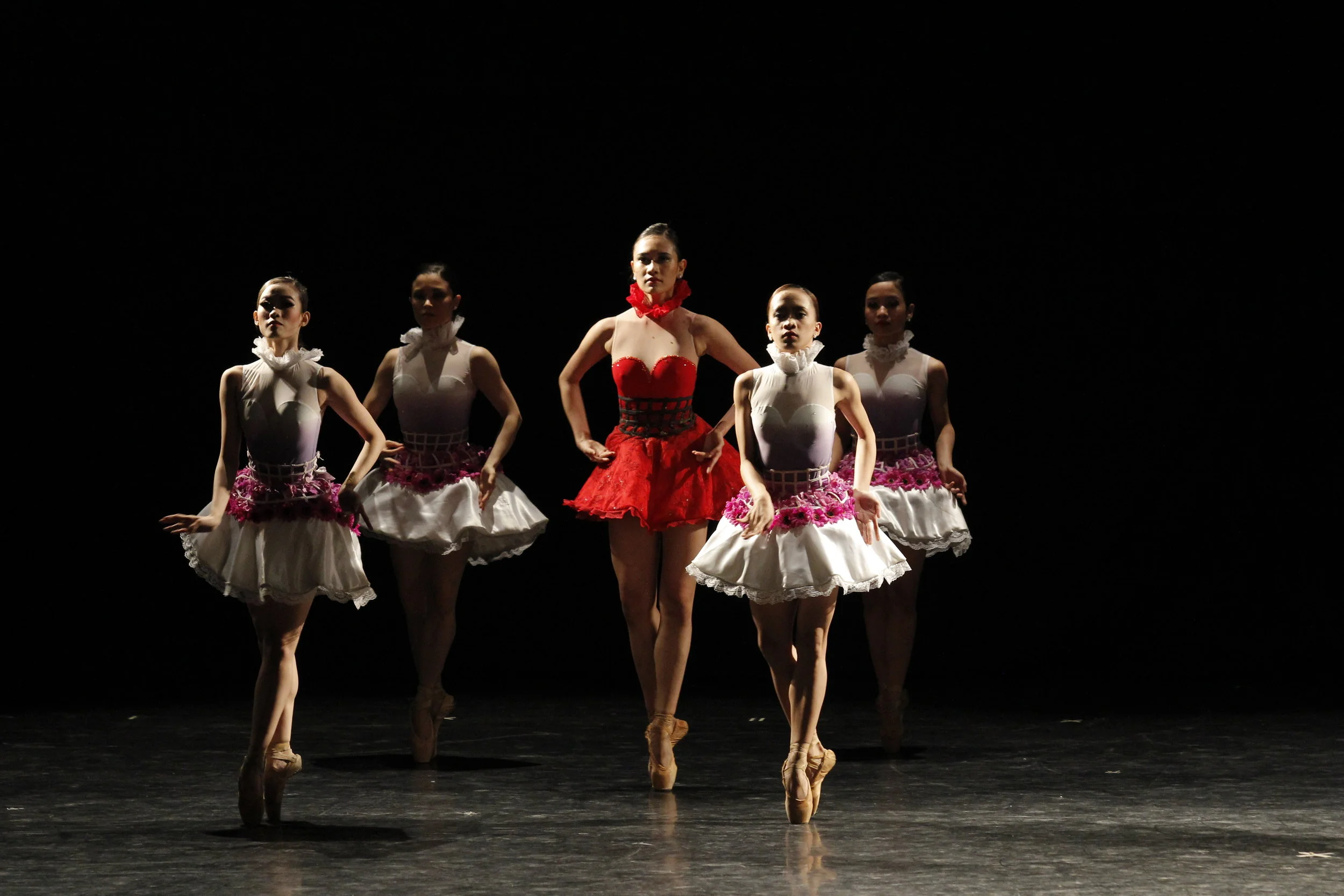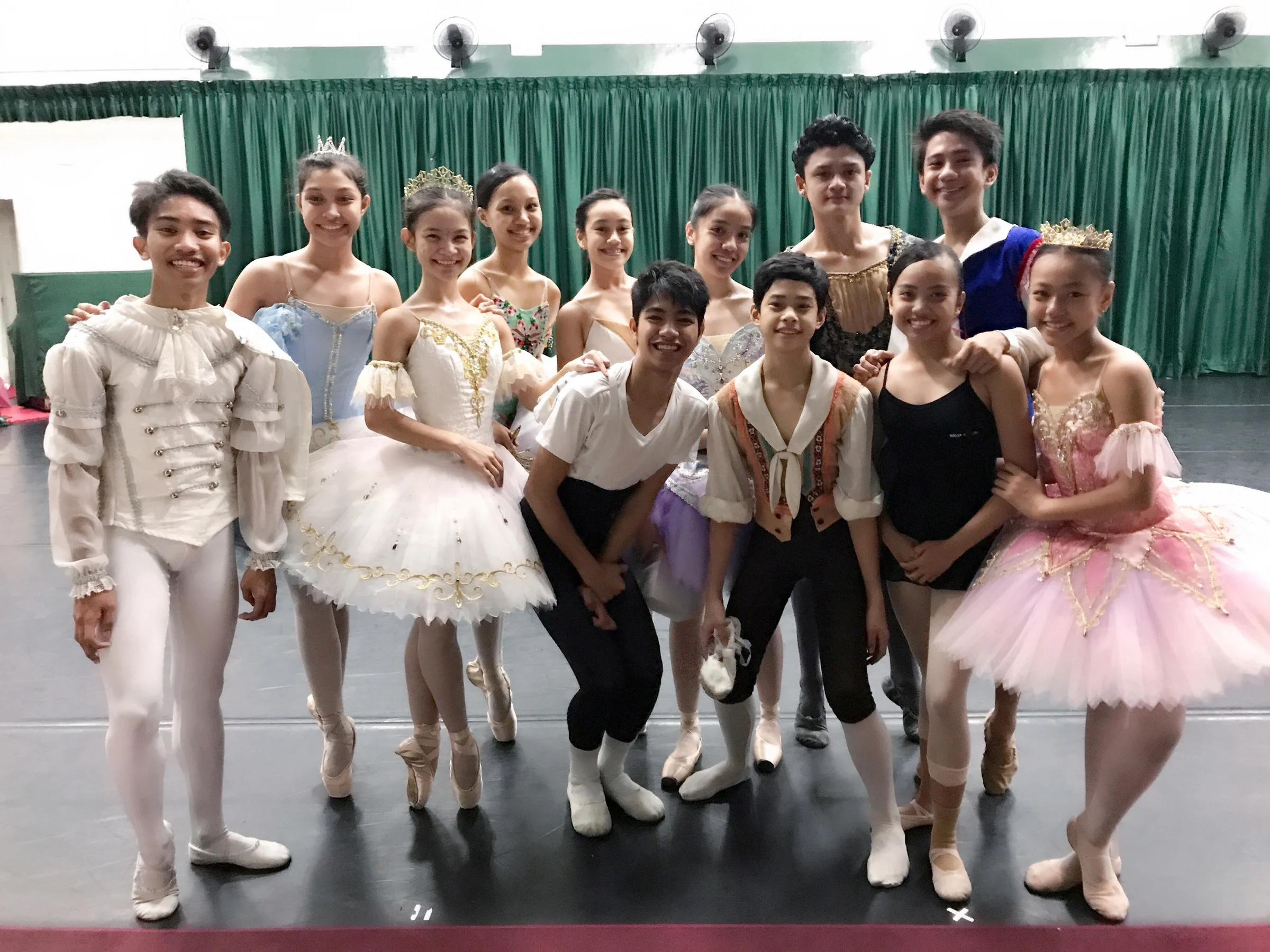Ballet Manila teen danseurs win gold, silver in Asian Grand Prix
Video courtesy of the Asian Grand Prix
In a competition dominated by ballerinas, two teen danseurs representing The Lisa Macuja School of Ballet Manila showed they can stand toe to toe with their female counterparts.
Brian Sevilla, 16, won the gold medal in the Junior B division while Rafael Perez, 17, bagged the silver in the Senior division of the Asian Grand Prix International Ballet Competition in awarding ceremonies held at the Hong Kong Academy for Performing Arts Friday night.
They are also the only Filipinos to have won in the eighth year of the competition which draws participants mainly from the Asia-Pacific region.
Dancing the Franz Variation from Coppelia, Sevilla was one of just three boys remaining in the Junior B finals, competing with 12 girls. Perez, who danced the Basilio Variation from Don Quixote, was one of four boys left in the Senior finals, along with six girls.
Asian Grand Prix gold medalist Brian Sevilla (left) and silver medalist Rafael Perez celebrate with Lisa Macuja-Elizalde, Ballet Manila artistic director and BM School director, after awarding ceremonies at the Hong Kong Academy for Performing Arts.
Both Sevilla and Perez tied with female competitors in their respective divisions. No gold was awarded in the Senior division.
“The fact that Rafael won the Senior silver and Brian won the Junior B gold indicate that the training in Ballet Manila in classical ballet is up to par with the best and older institutions of dance,” said an enthusiastic Lisa Macuja-Elizalde, BM artistic director and BM School director, who was right there on stage when the danseurs were awarded as she was a juror in AGP’s Pre-Competitive divisions.
“Also, it is a triumph for our male scholarship program and Project Ballet Futures,” the prima ballerina added, referring to BM’s scholarship program officially launched in 2008. The efforts have been so successful that BM for several years now has had more male than female dancers in its ranks.
Garry Trinder, AGP jury president, noted the dearth in male participants, accounting for only ten percent of 240 competitors this year. He vowed to help in increasing that figure in time for AGP’s tenth anniversary in 2020.
Video courtesy of Asian Grand Prix
“What I am pleased with the most is that Ballet Manila has established itself as a force in international ballet competitions especially this year, and is now particularly known as the producer of top-caliber male ballet dancers!” enthused Macuja-Elizalde.
Sevilla also received a two-week scholarship from the Queensland Ballet Academy, a cash prize from Atelier Yoshino to help him reach his scholarship destination and a Gaynor Minden Prize consisting of products from the dancewear brand.
Meanwhile, Ballet Manila trainee Loraine Gaile Jarlega, 12, also reached the finals of the Pre-Competitive 3 division, one of just 17 dancers left from 56 competitors in the semi-finals. She danced Fairy Fleur de Farine from Sleeping Beauty.
Jarlega had also attended the AGP’s Ballet Intensive Program the week before, a scholarship she won for topping the Pre-Competition 3 Category of the AGP Regionals in Manila last April.
Video courtesy of Asian Grand Prix
The Lisa Macuja School of Ballet Manila was also represented by semi-finalists Carl Daniel Doromal, Elyssabeth Apilado, Alvin Dictado, Kong Ke Xin and Sophia Tiangco, with BM rehearsal mistress and BM School faculty member Eileen Lopez heading the delegation.
Macuja-Elizalde described the AGP as akin to a tradition for BM every August. “We first started joining AGP in its second year and this competition is its eighth.”
Herself a prize-winner in her earlier years, Macuja-Elizalde believes that joining competitions such as AGP contributes to the development of BM dancers as they represent their Russian Vaganova training and as they meet peers from other parts of the world.
“You win some and you lose some. Ballet competitions are all part of life and you always win no matter what the results are because of the learning and the journey,” she said.
Video courtesy of Asian Grand Prix
In Manila, BM co-artistic director Osias Barroso, while receiving the happy news of BM’s victory in AGP, pointed out: “What dancers do after a competition is more important.”
For BM’s AGP competitors, it means jumping back into rehearsals for the company’s upcoming season-opener, Iconic 1.0 and Iconic 2.0, offering two different programs over two weekends.
Even as the delegation was still celebrating in Hong Kong, Barroso was already reminding the dancers to focus on rehearsing their pieces for the Iconic productions.
Eileen Lopez – who shepherded the kids in Hong Kong, registering them and getting them to their classes and respective competitions – summed it up best: “It’s back to the barre for them on Monday!”
In his remarks at the AGP awards program, jury president Trinder took special note of the high technical standards in the Pre-Competitive, Junior A and B categories this year. He also said there was a marked attention to artistry and musicality among participants, raising the level of the competition.
Ballet Manila’s Asian Grand Prix delegation in Hong Kong with BM artistic director and BM School director Lisa Macuja-Elizalde (fifth from left) and BM rehearsal mistress and teacher Eileen Lopez (fourth from left): Elyssabeth Apilado, Rafael Perez, Carl Daniel Doromal, Sophia Tiangco, Loraine Gaile Jarlega, Brian Sevilla, Kong Ke Xin and Alvin Dictado.
Trinder also thanked the people who worked behind the scenes in making the eighth edition of the AGP a success, citing the leadership of chairman So Hon Wah and manager Virginia de Blank.
For the first time, AGP held regional competitions in 10 major cities in the Asia-Pacific Region earlier this year. Qualifying rounds were held in Jakarta, Singapore, Taipei, Bangkok, Osaka, Hong Kong, Manila, Sydney, Seoul and Auckland.
More than 700 dancers participated in the regionals, with 240 eventually being chosen to compete in the finals in Hong Kong from August 13 to 17.
Competitors were assessed by an international panel of jurors not just for their performances on stage, but also during ballet classes held throughout the week.
Medals and certificates, as well as prizes in cash and in kind from partner organizations and sponsors, were given out to the winners.






